As I learn more about feminism and gender parity, I have decided it would be opportune for me to gather some historical insight on the issue that is personally relevant to my life. I sat down and interviewed two people who I enjoy spending time with and whose opinions I value: my grandparents. More so, I was intrigued to hear their candid perspectives on these issues since they have experienced a lot in their lifetimes and are always willing to share their views on controversial topics with me. So I chose to interview them separately and then discuss with them after to be able to compare their views. I have condensed the interviews into one dialogue for the purpose of fluidity. However, keep in mind that they have no idea how they each responded.
Question: Does sexism still exist in modern, American culture? Do you see instances of sexism in your everyday life? If so, give examples.
Grandma Jo: “I believe so; it depends on the industry and its rate of pay. In healthcare, I managed men and women who did the same clerical duties with the same expectations. In the entertainment industry, there wasn’t any equality of pay. Women got much less and we’ve fought that for years.” Then she continued, “I’ve heard sexist remarks on TV or people saying things like Trump said to Carly Fiorina–he made some comments about the way she looks–but is that because she is his opponent or because she is the only female candidate in their party?” We considered this together, and then she asked me, “So if you see a man opening a door [for a woman], is that sexism?” And it makes you wonder, if we are fighting for independence and equality, where do you draw the line? We can’t possibly argue that being polite is promoting gender disparity, can we? As for my grandma, “I don’t think of it that way. Does sexism still exist? Yes. I can’t say that I am a firsthand witness of it, though.”
Papa Ken: “Sure, sexism still exists but it depends on your definition.” Working in the entertainment industry, he has seen many instances of sexism, but what stood out the most was an instance in which he witnessed a woman with management connections who was favored and got a better position despite certain labor laws because her personal connections outweighed her experience. However, “I‘ve also seen male secretaries, but to use your femininity for advancement–that is wrong.”
Q: What do you think of when you hear the term “feminism?” What images come to mind? Has your view of feminism changed over time? Do you consider yourself a feminist?
GJO: “When I think of a feminist, I think of a strong woman with class. I think of women burning bras and exerting their independence, and "The Feminine Mystique." I remember Gloria Steinem in the 60s talking about how we didn’t need men. But do I consider myself a feminist? Not really. Not today, though I would’ve called myself a feminist in my youth. As you get older and a little bit wiser, you see that you don’t need a title to be a strong, self-assured individual.”
POP: From his answer, it is apparent that my grandpa doesn’t quite understand what feminism is or means to him, at first. However, I noticed that as he thought about his answer, he began to uncover his own opinion of feminism. He said, “I think of a female, maybe strong-willed or overbearing, I guess there are some of those. But I think feminism is OK, there are some brilliant women out there who are equal and definitely no lesser than men. In fact, women are probably a little better in a lot of cases because they’re very intelligent and don’t get distracted as much.” He says this last part with a chuckle, and though he doesn’t realize what he is saying at first, it is clear that my grandfather is a feminist. However, just like my grandma, he doesn’t seem to identify as such.
One of the major things that stuck out to me was that neither of my grandparents had a clear understanding of what feminism actually is, even though they both lived through the most crucial period in the development of the movement.
Q: What can each sex learn from each other that would help them evolve as people and achieve better communication?
GJO: My grandma considers this question and after a moment states, “Tolerance and understanding of the opposite sex. If you understand and tolerate others’ decisions, you can communicate better. On a personal level, I find that men are more patient and women could work on that.” Genetically this may be true, though at this point, it seems like she is referencing her personal relationship. “Men use tools and their mind is more mechanical. Is that because of their cultural upbringing–just like girls wear pink skirts, boys wear pants? I suppose we could learn balance from each other, instead of 'this is for girls' and 'this is only for boys.'”
POP: “Compassion, politeness, knowledge, mostly they should respect each other.” We spoke about achieving better communication in the workplace to which my grandpa brought up job descriptions. He said, “When given a job overview it should be clear for a man or a woman to be able to tackle the job.” His point being, it is not that women can’t do the same jobs as men, but certain industries create a divide in the idea of accomplishing the same tasks just because men and women think in different ways and have different opinions.
Q: Are men impacted by gender equality? If so, are they affected negatively or positively?
GJO: My grandma has some conflicting opinions when posed with this question, she feels, “Men are intimidated by it. They think that it takes their manliness away. They think, 'a woman can't do that better than me!'" However, in her daily life, she doesn’t know a man that would take it negatively. She also makes sure to let me know, ”I speak of your grandfather and my relationship with him, mostly.”
POP: My grandpa acknowledges that there is a different mindset. He recalls the gender roles of “boys growing up working on cars with their dads, thus men have more of a mechanical way of thinking. But there is a lot of cross-over, especially now, and it doesn’t mean that guys have to be truck drivers and women shouldn’t have to dress super feminine.” He asks me to repeat the question and continues, “Macho guys might be affected, but I’m not. Your grandma is brilliant, and I have the deepest respect for her! I think most men have a more mechanical background and women are tuned in with everyday operations so there is a difference in the importance of certain knowledge.”
I've learned that there is a different mindset because men are expected to think and operate differently than women in society. Boys grow up with the expectations to act tough, never cry and provide for their families. This can be a lot of pressure to live up to, and it is completely unfair to hold men to this standard.
Q: Do you think that gender equality is an issue that we should be concerned with today? What do you think we can do as individuals to contribute to the progress of gender equality?
GJO: “It goes back to the industry that you are in, but I don’t know if it has changed all that much. We are different, I don’t think I could accomplish some male tasks, and some I just don’t want to.” Then she turns to my grandpa and laughs, “Kenny, have I ever changed a light bulb?” She refocuses on our interview and in a more serous tone notes, “We have come far. Women used to have the expectation of being a secretary, teacher or nurse, and that was it. Where there is inequality, it needs to be addressed and it takes the communication of both sexes to come to an agreement. If you feel strongly about [gender equality] you should address it and I think women are continuing to do that.”
POP: When I asked my grandpa if gender equality was still an issue to be concerned with, I was almost surprised to hear him say, “Yes, and I can’t believe it’s not already!” He wants to see this country achieve equality and sees that individuals are contributing to the progress of gender equality “now more so than ever.” He cites the movement for equal pay for equal work and Hilary Clinton running for president. He then added somberly, “It’s coming–I won’t see it in my lifetime, but you might.”
In response to the first question, "Does sexism still exist and do you see instances of it in your everyday life?" my grandparents both referenced the personal experiences that they had in their careers, although these instances were vastly different. Having worked as an administrative healthcare professional, my grandma did not personally experience sexism in her industry. My grandpa, however, did witness sexist actions, but as a man, he had a different perspective on the issue. Neither of them felt that they experience sexism in their lives today, but they did acknowledge that it still very much exists in American culture. My grandma, as a female who was in her 20s during the 1960s experienced a lot of change in the feminist movement. And though she says she is not a feminist, she clarified her answer with a profound observation that you don’t need a label to be empowered and self-assured.
My grandpa's last comment truly touched me, and I realized that this subject is so much bigger than a controversial social trend or a continued effort toward gender parity. This controversy tugs on a web of fabricated social constructs that has been built on for generations. These disparaging social constructs are woven through politics, religion, finance, education, marriage and pretty much every aspect of modern society. We have been through waves of progression and we are currently on the brink of a breakthrough, since this topic has become popular in politics of late. Seeing as my grandfather was born in 1926, he has lived through many of these waves and acknowledges how far we have come as a society. It is inspiring to think that he believes equality could be attainable during my lifetime.
On a typical evening like the one I interviewed them on, my grandma cooks dinner and my grandpa washes the dishes after. They do these tasks because they excel at them and enjoy doing them. These are the roles that they have assigned themselves, that fit into their personal lives despite the ideals of traditional gender roles that they were raised on. My grandpa has always known the values of traditional gender roles, but I think it is wonderful that he is able to consider and challenge these beliefs and perhaps realize his own values in the process. I found it interesting whilst interviewing my grandparents that they both turned out to have a concern for gender equality and had the same beliefs overall. I was surprised and proud that my grandparents' responses were so humbly profound and both have been through so much in their lifetimes that they were able to meet my questions on gender roles with some truly insightful responses.


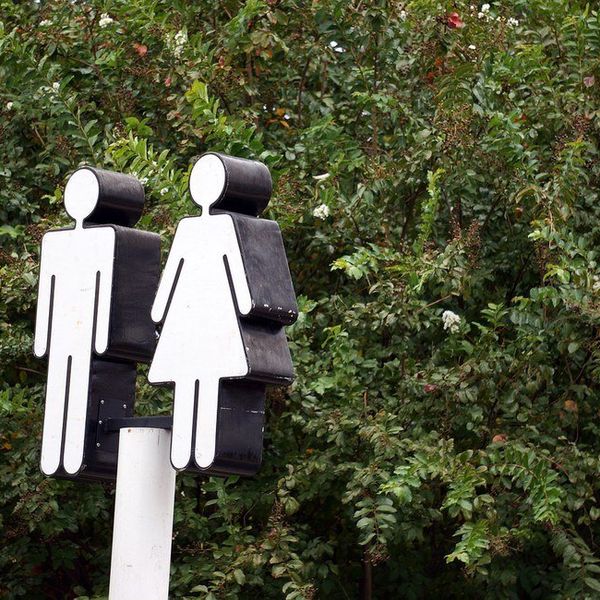

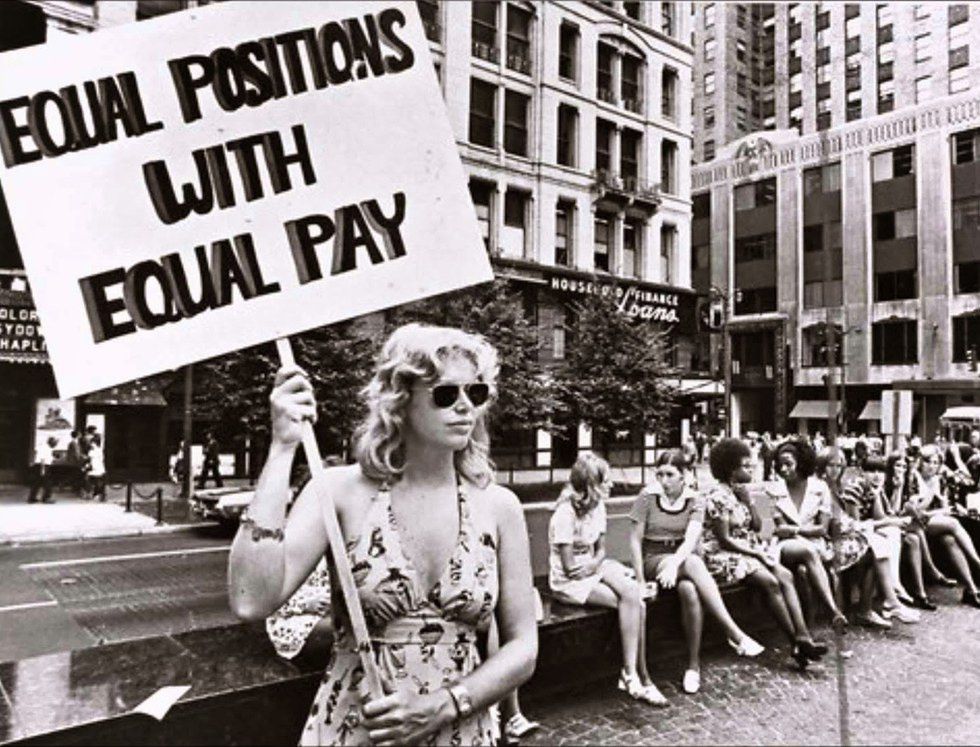
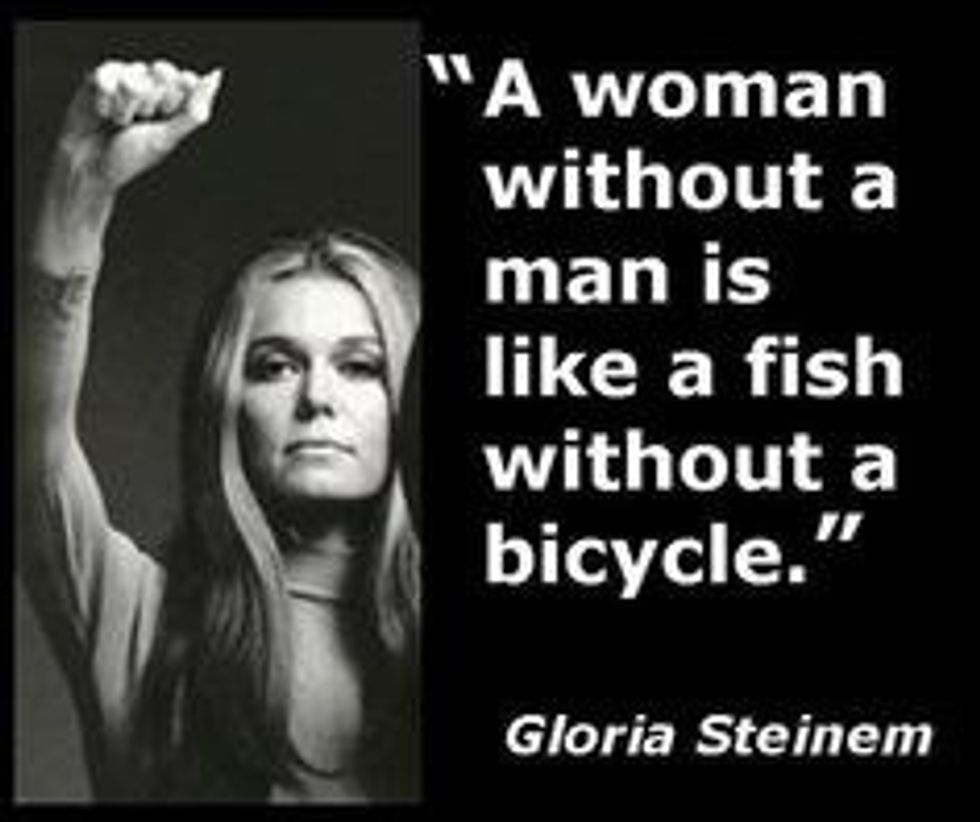

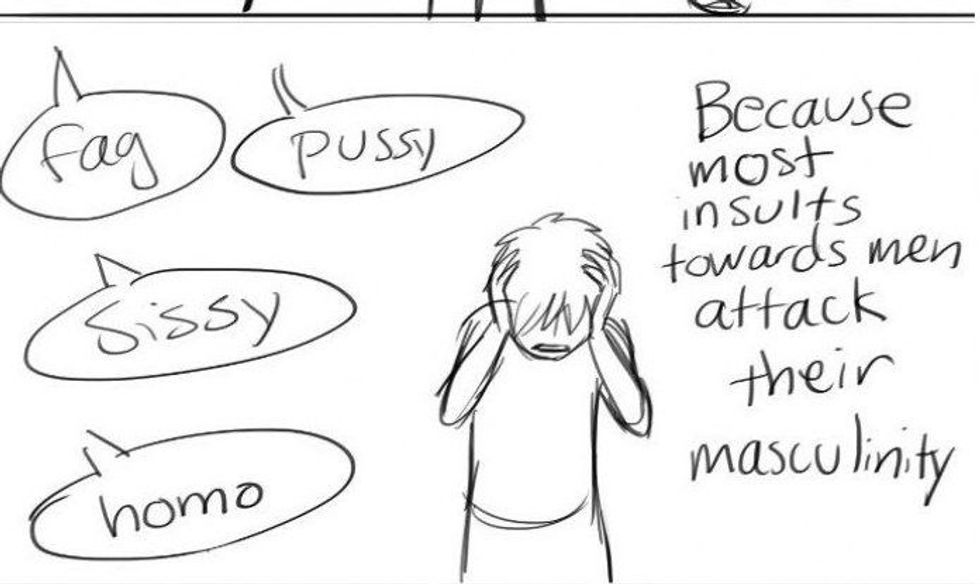
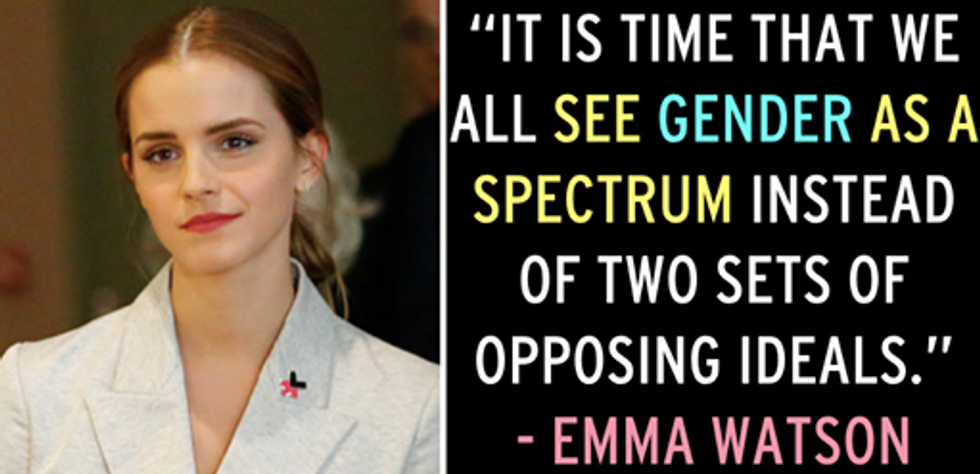






 man running in forestPhoto by
man running in forestPhoto by 










